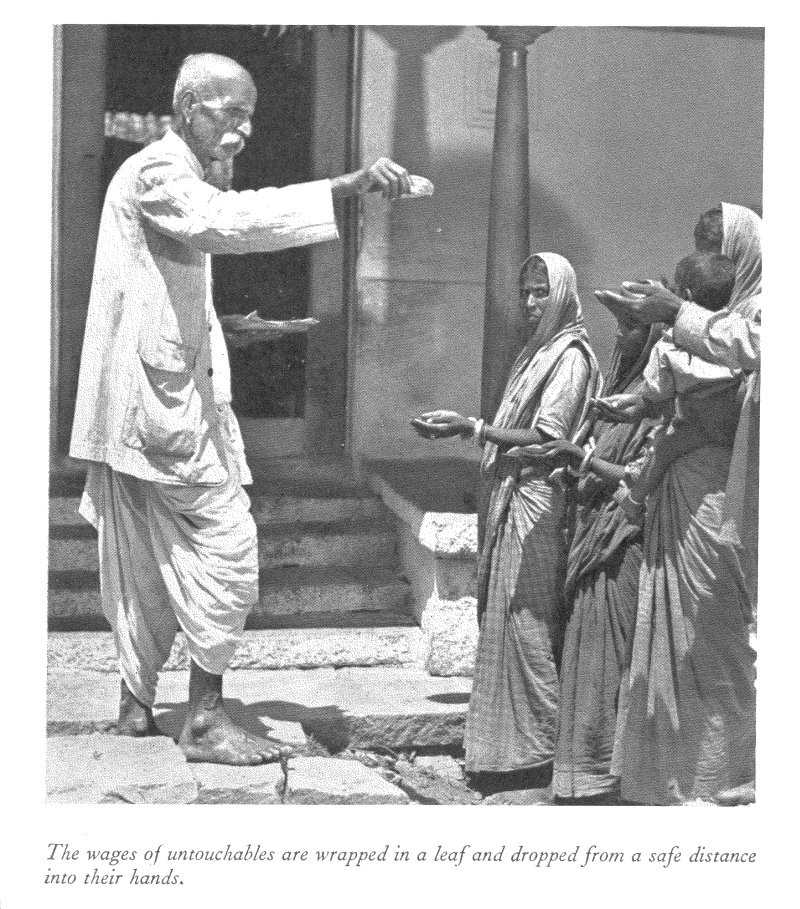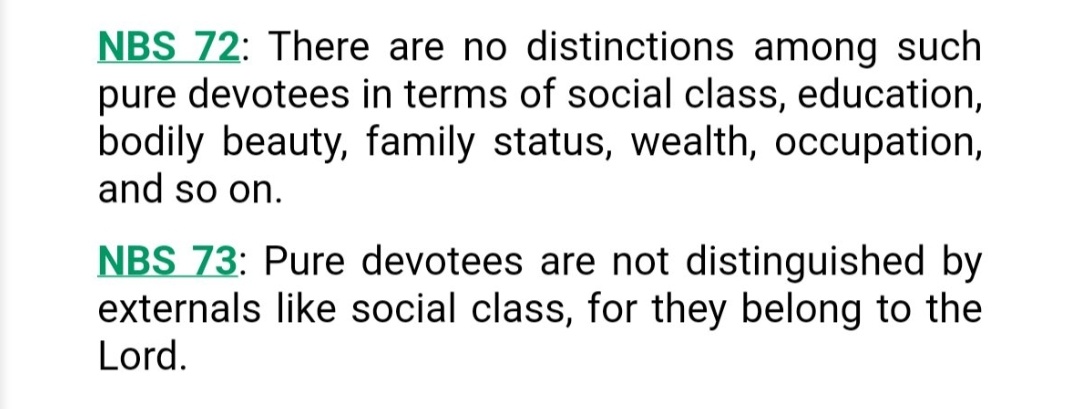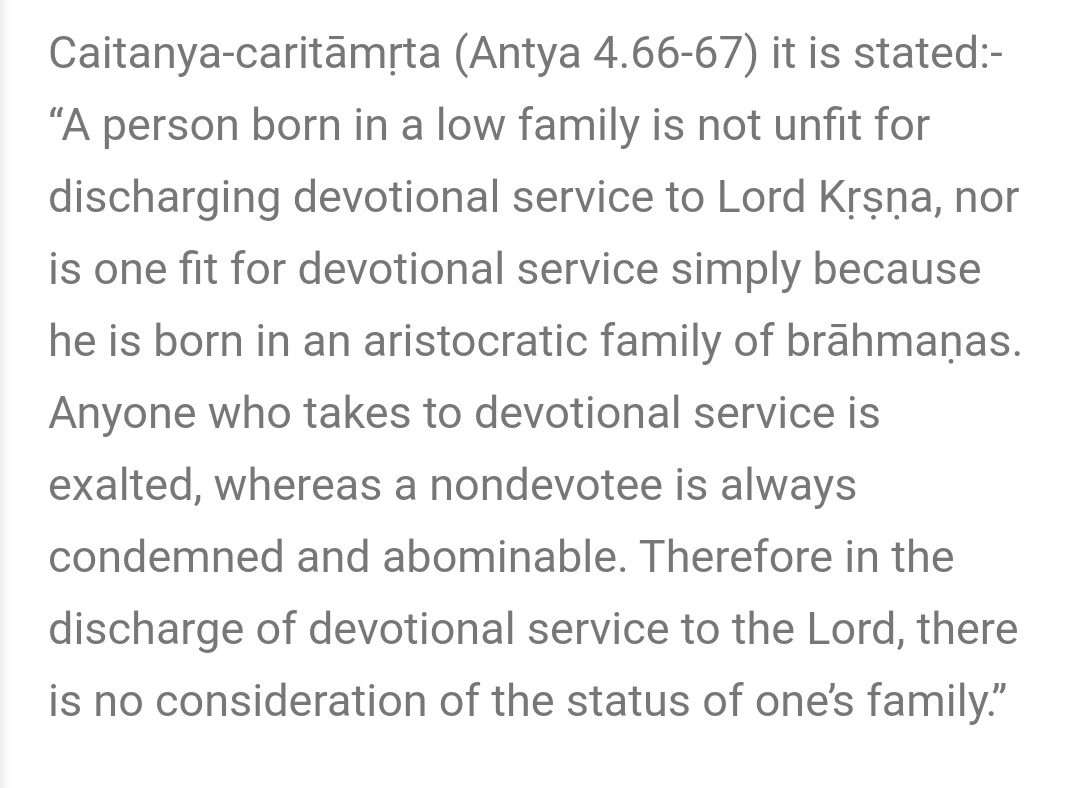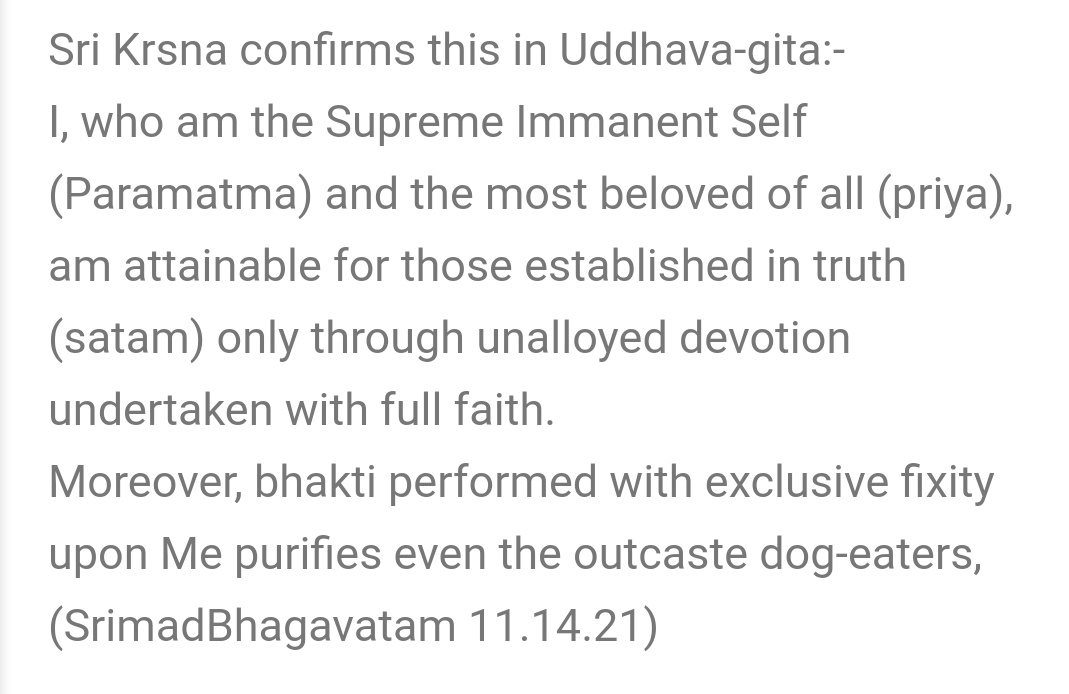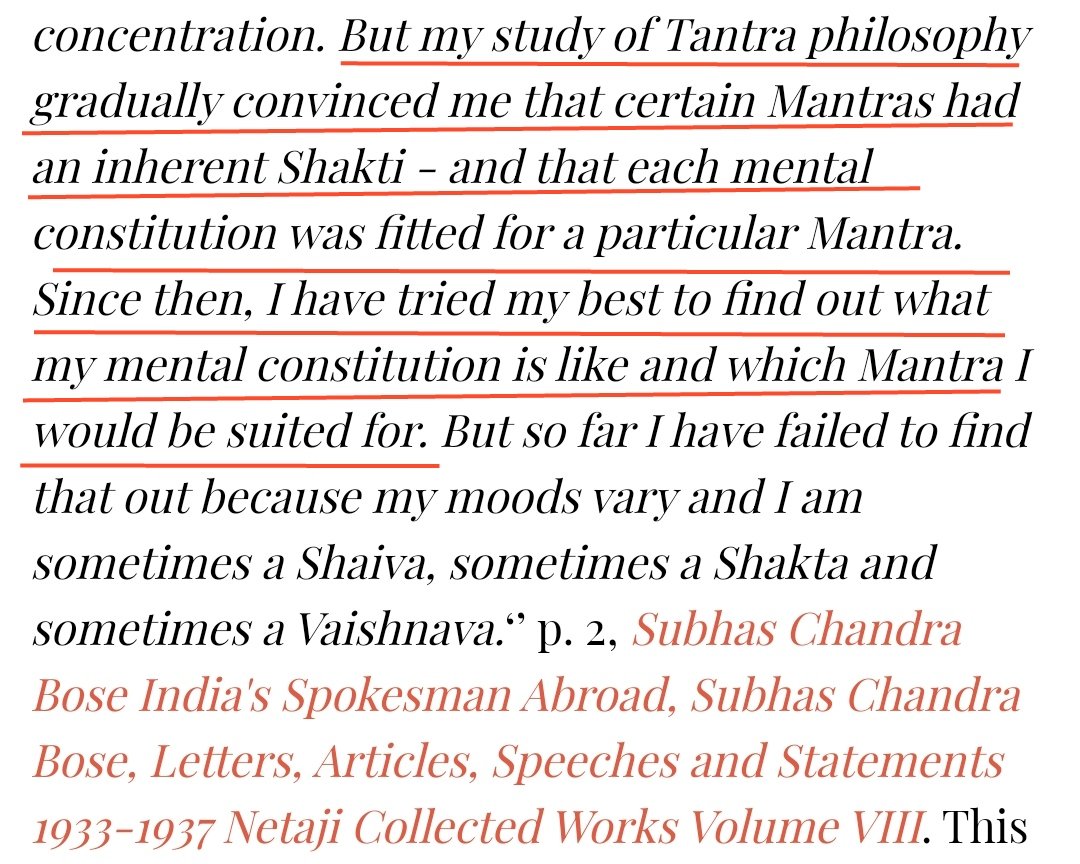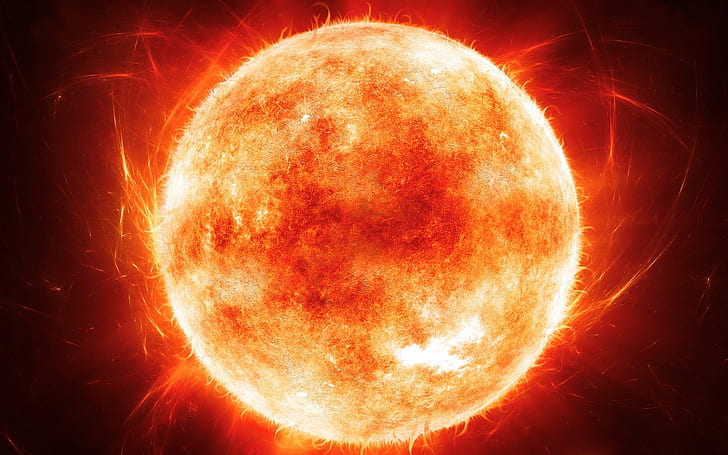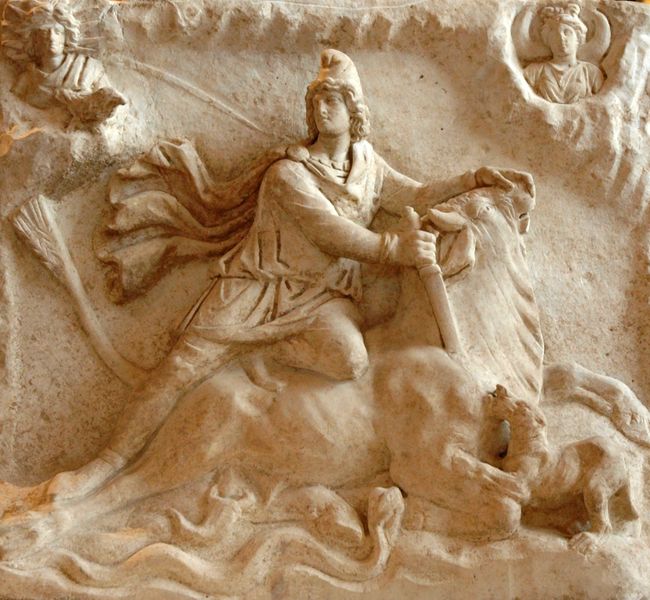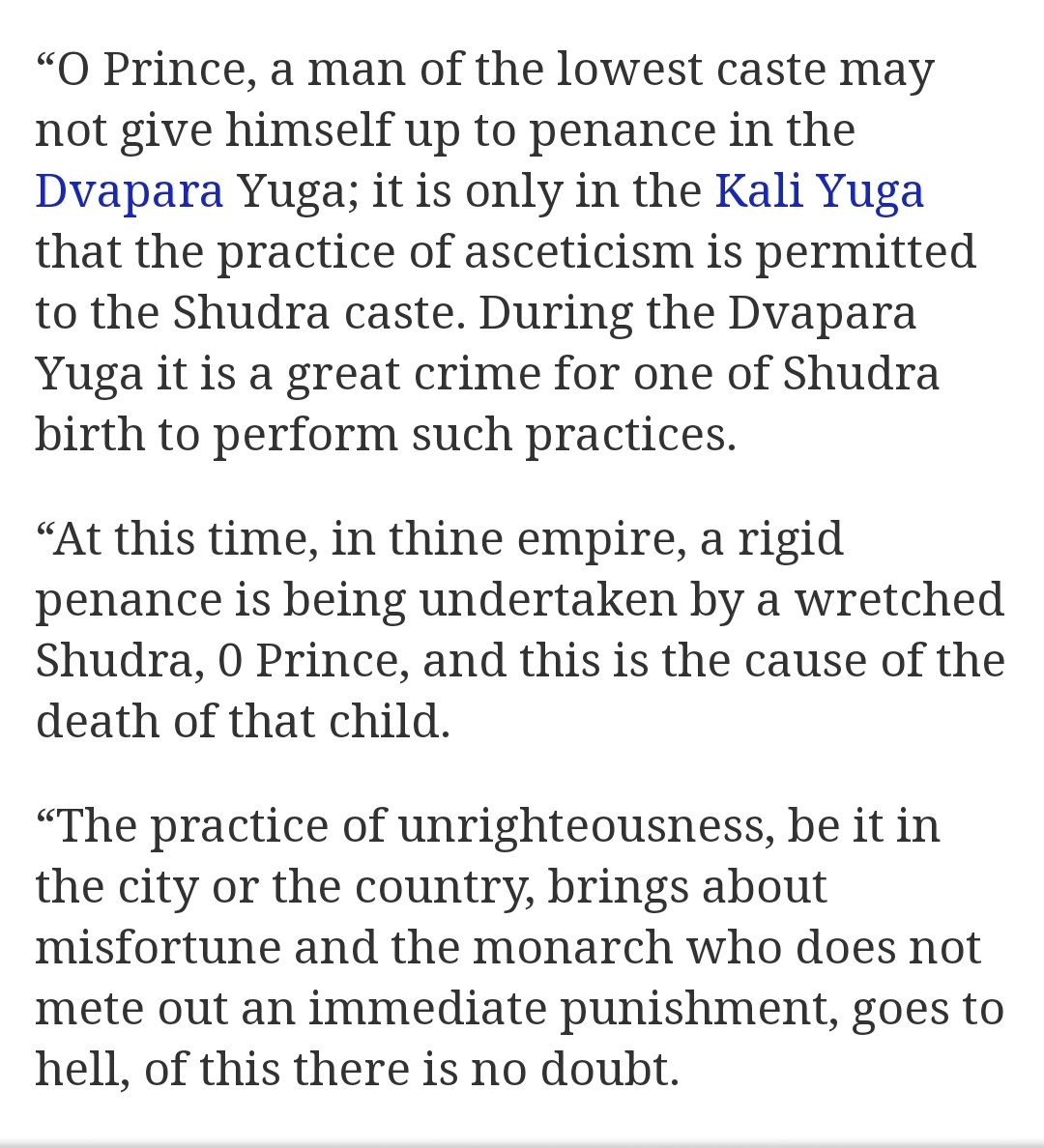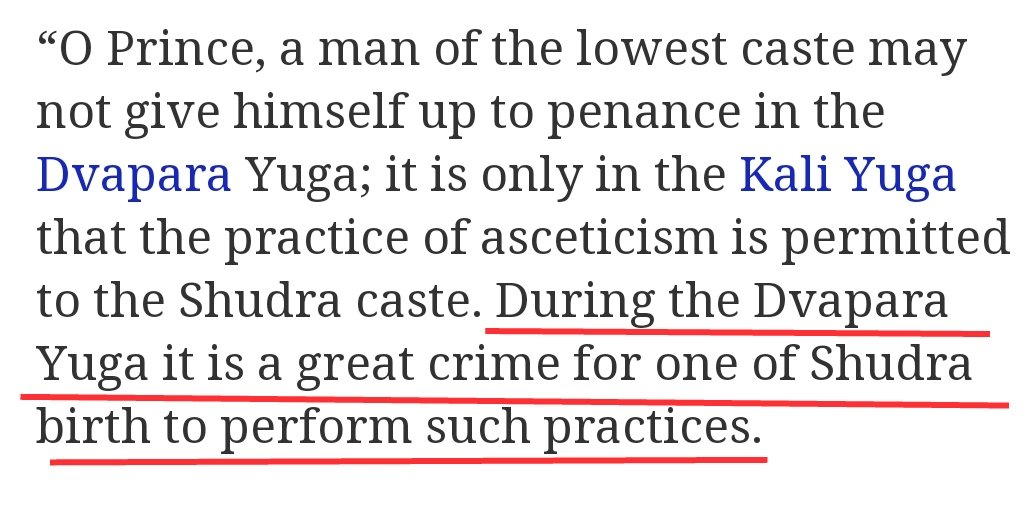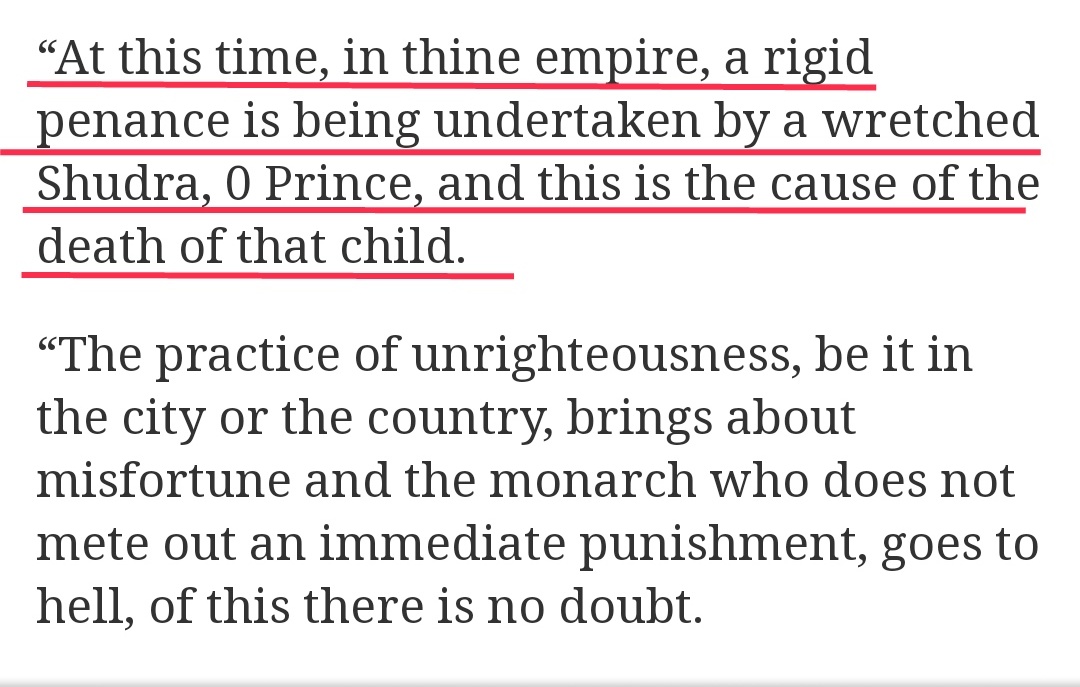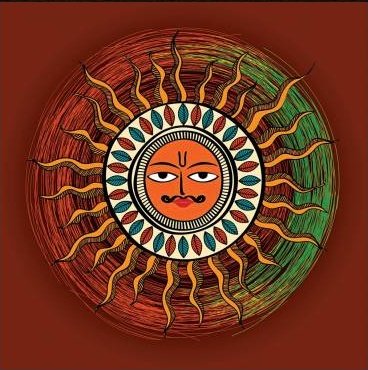1) Shudras originated from the feet of Lord as per as per Rig Veda 10.90.12
This argument is common in Anti-Hindu circles that Shudras born from Lord's fee. It means shudras were impure.
This argument is common in Anti-Hindu circles that Shudras born from Lord's fee. It means shudras were impure.
But nothing bad in that verse as per the same Suktam Rig Veda 10.90.14 it says:-
“From his navel came the firmament, from his head the heaven was produced, the earth from his feet, the quarters of space from his ear, so they constituted the world.”
“From his navel came the firmament, from his head the heaven was produced, the earth from his feet, the quarters of space from his ear, so they constituted the world.”
Earth is also originated from its feet, Is Earth also impure then ?
As per Padma Purana, Vedas reside on the feet of Lord Varaha(incarnation of Vishnu). So The vedas are also impure then ?
As per Padma Purana, Vedas reside on the feet of Lord Varaha(incarnation of Vishnu). So The vedas are also impure then ?

Ganga's origin Was from Vishnu's feet.
Vishnu Purana 2.8:- Having her source in the nail of the great toe of Vishńu's left foot.
Vishnu Purana 2.8:- Having her source in the nail of the great toe of Vishńu's left foot.
2. Is Hinduism against lower-castes ? Let's see
It is through deep love that the Chandala makes me his own, while without it the Brahmin is nothing to me. (Garuda Purāṇa 1.231.9)
It is through deep love that the Chandala makes me his own, while without it the Brahmin is nothing to me. (Garuda Purāṇa 1.231.9)
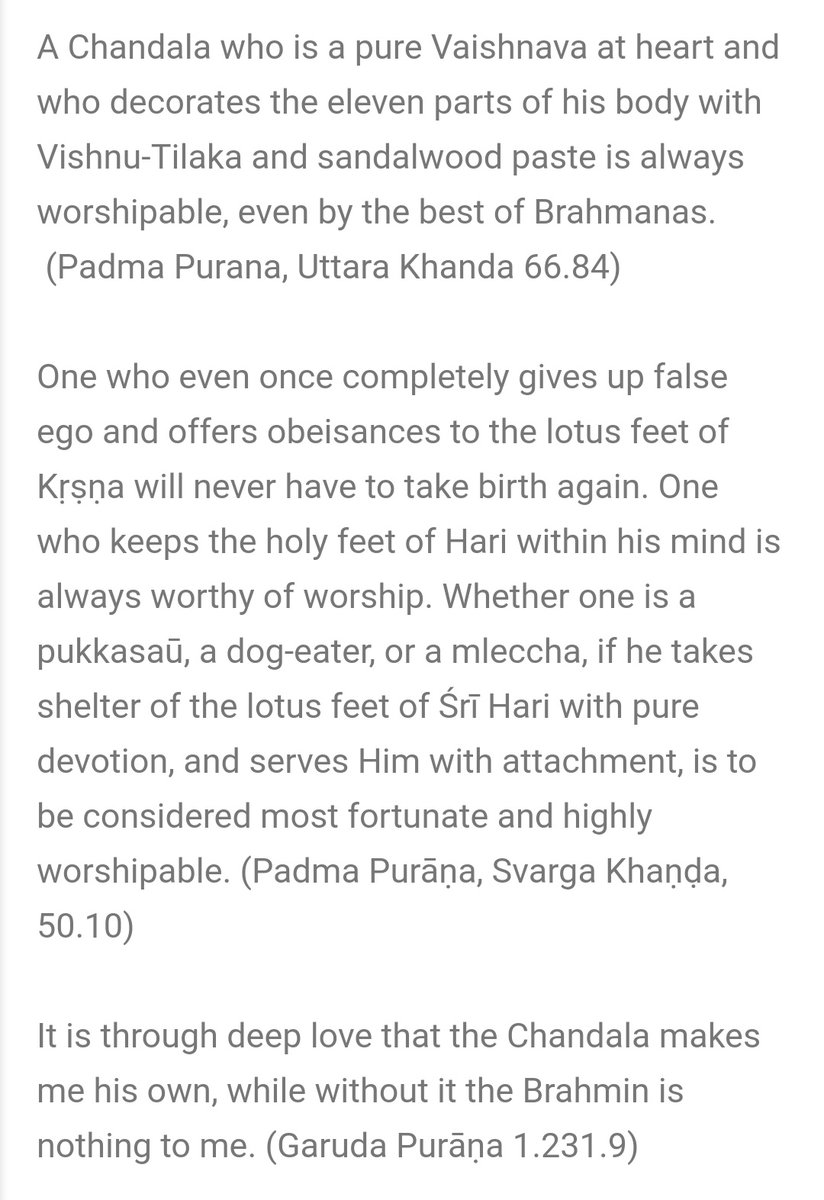
"O King of Videha! the Dvijas, who possess the knowledge of Vedas & Śāstras, call Śūdra as Prajāpati. But O King, I see him as Viṣṇu, the chief Lord of the world."
Mahabharatha 12-296-28 in Gita press edition.
Mahabharatha 12-296-28 in Gita press edition.
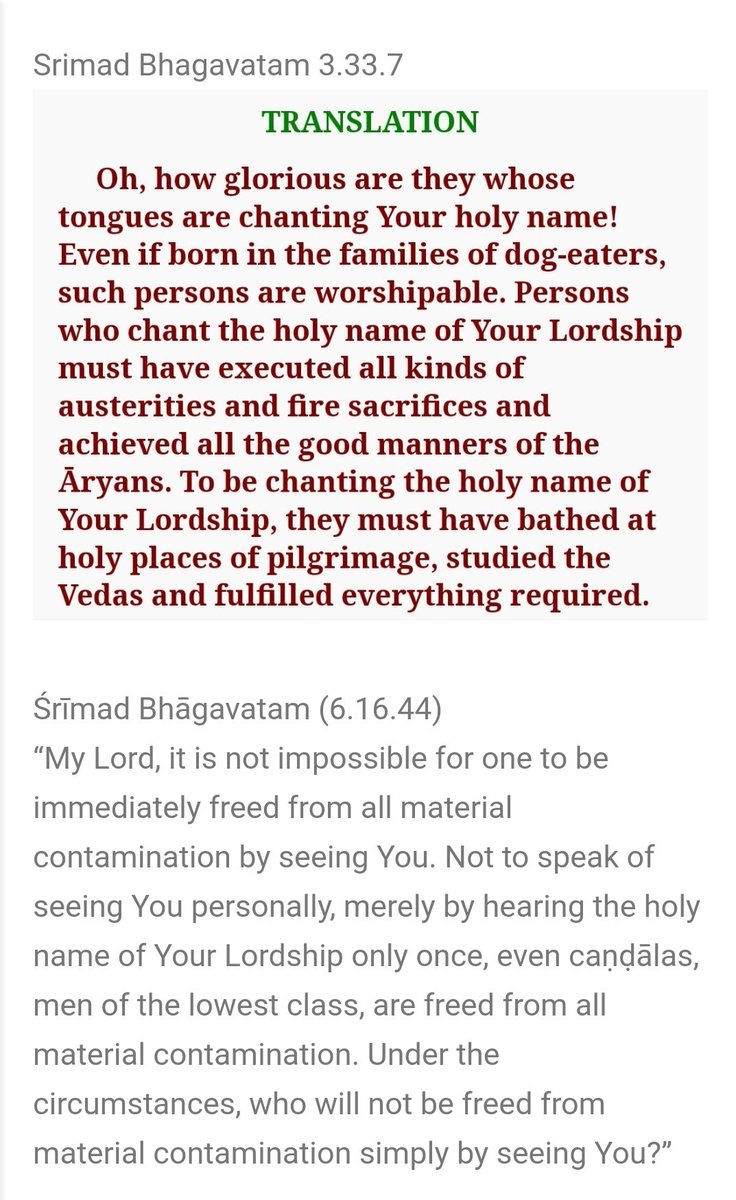
Shiva Purana 5.2.35-36
"O Kṛṣṇa, a cāṇḍāla woman Sauminī performed the worship by ignorance and attained the goal of Śiva by the blessings of the lord.
A hunter Mahākāla, a wild Kirāta habitually injuring others, worshipped Śiva with devotion and attained the goal+
"O Kṛṣṇa, a cāṇḍāla woman Sauminī performed the worship by ignorance and attained the goal of Śiva by the blessings of the lord.
A hunter Mahākāla, a wild Kirāta habitually injuring others, worshipped Śiva with devotion and attained the goal+
of the good."
Even a Cāṇḍāla who wears Rudrākṣa over his body and the Tripuṇḍra on his forehead, is worthy of respect. He is the most excellent of all castes. —Shiva Purana 1.24.62
Even a Cāṇḍāla who wears Rudrākṣa over his body and the Tripuṇḍra on his forehead, is worthy of respect. He is the most excellent of all castes. —Shiva Purana 1.24.62
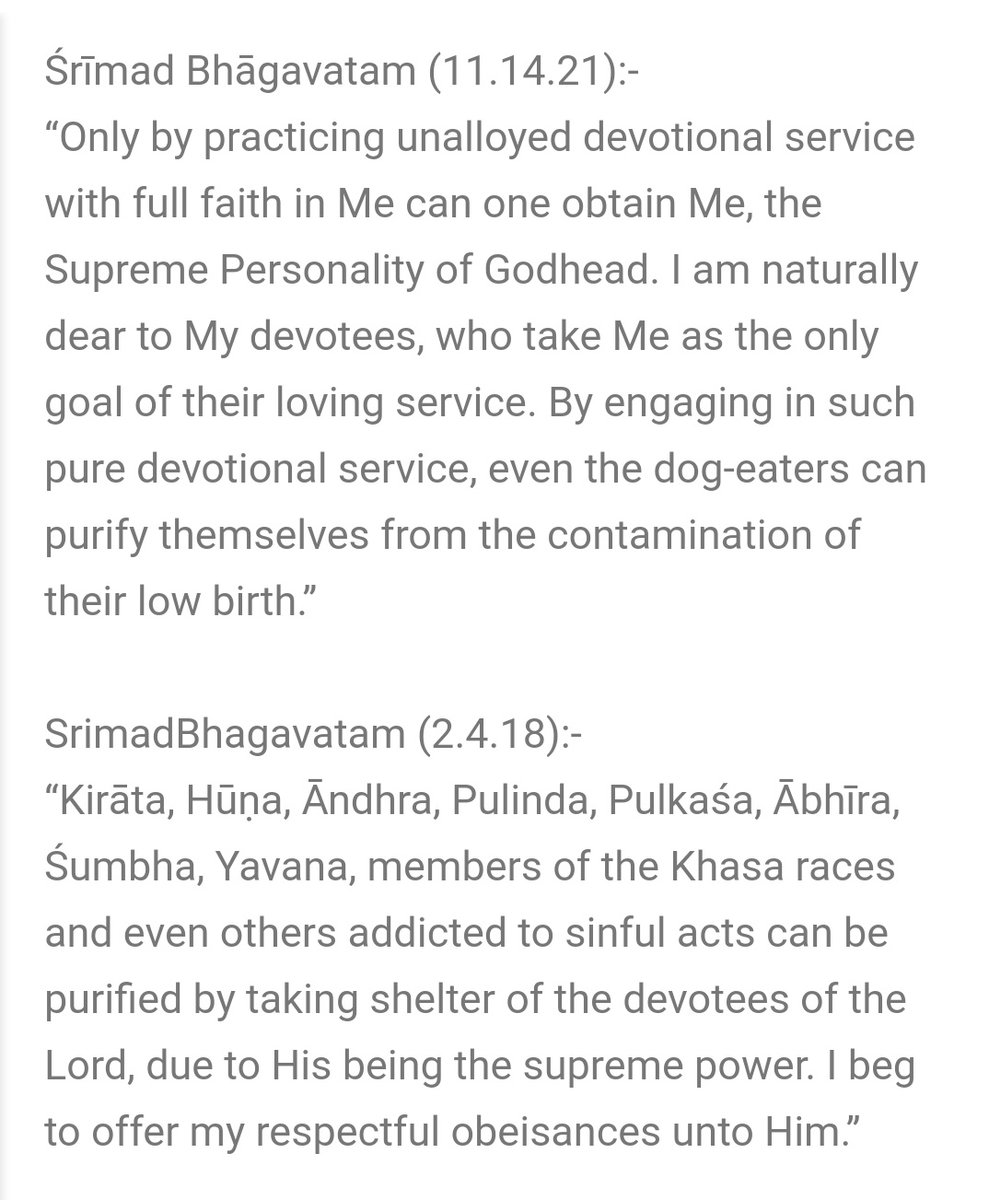
Nāradīya Purāṇa 1.34.41:-
चण्डालोऽपि द्विज श्रेष्ठो हरि भक्ति परायण: ।
हरि भक्ति विहीनश्च द्विजोऽपि श्वपचाधमः ॥
चण्डालोऽपि द्विज श्रेष्ठो हरि भक्ति परायण: ।
हरि भक्ति विहीनश्च द्विजोऽपि श्वपचाधमः ॥
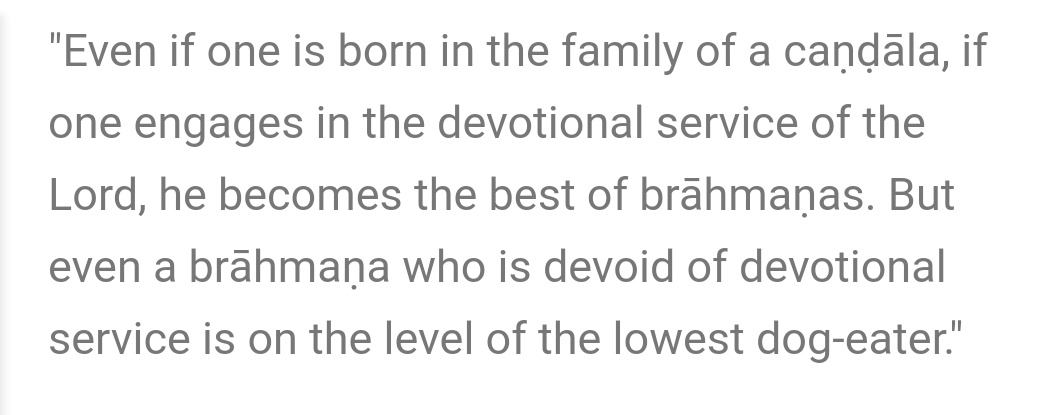
श्वपाकामिव निक्षेत लोके विप्रमवैष्णवम् ।
वैष्णवो वर्णबाहयोऽपि पुनाति भुवनत्रयम् ।।
One should not even look at a non-devotee Vipra. But if an avarna is a Vaishnava, one purifies the three Lokas.
—Padma Puraana (Quoted by Shri Madhvacharya, in Krshnaamrta Mahaarnava, Shloka 267)
वैष्णवो वर्णबाहयोऽपि पुनाति भुवनत्रयम् ।।
One should not even look at a non-devotee Vipra. But if an avarna is a Vaishnava, one purifies the three Lokas.
—Padma Puraana (Quoted by Shri Madhvacharya, in Krshnaamrta Mahaarnava, Shloka 267)
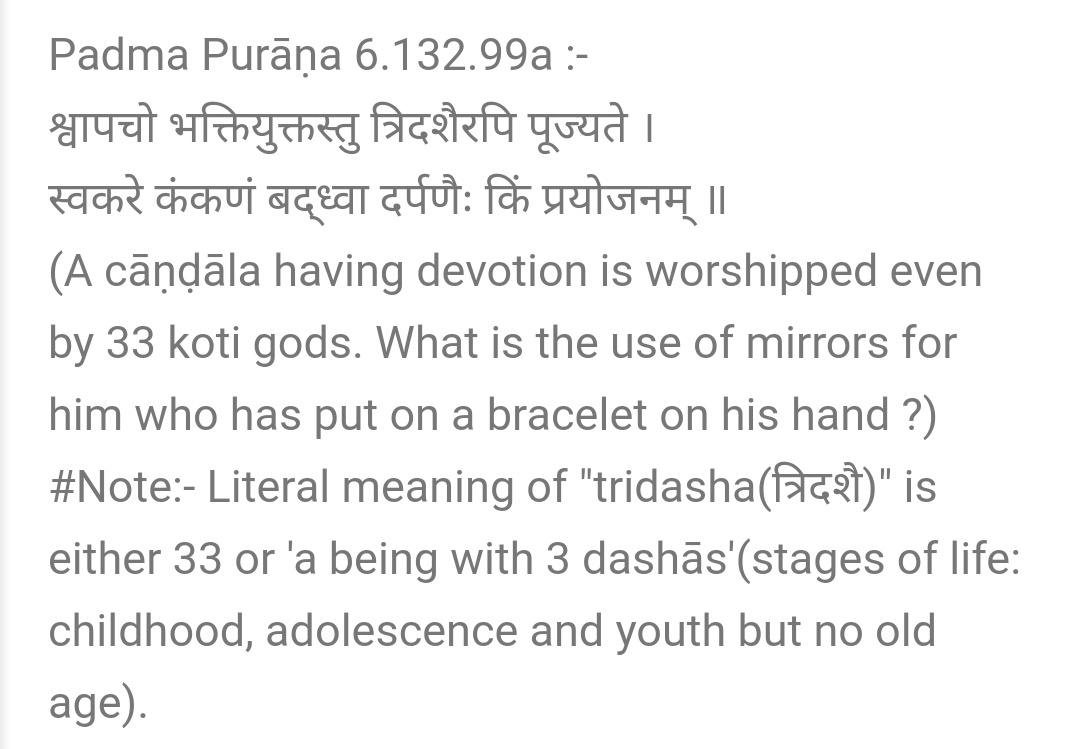
Manu states a Brahmin should provide maintenance for Shudra out of his own family.
Medhatithi comments that the Shudra should be treated like own son by a Brahmin, and his entire family must be taken care of by the Brahmin as well.
Medhatithi comments that the Shudra should be treated like own son by a Brahmin, and his entire family must be taken care of by the Brahmin as well.

Whether he is a Brāhmaṇa, a Ksatriya, a Vaisya, a Śūdra or Anyone else, One endowed with devotion to Vişnu, should be known as the most excellent one among all.~ skanda purana [1.21.63] 

A devotee of Vishnu, whether he be a Nishada, or a Chandala, is equal to a Brahmana in Respect Of Purity.
~Garuda MahaPuran, Achara Kanda, 232
~Garuda MahaPuran, Achara Kanda, 232
"A Bramhana who is expert in studying all four Vedas is not dear to Me. But a devotee who comes from a family of Chandalas is dear to Me. He should be offered gifts and one should accept gifts from him. He is as worshipable as I am."(Hari-Bhakta-Vilasa 10.127)
The faithful should receive auspicious knowledge even from a Śūdra, and knowledge of Para-Dharma even from a Cāṇḍāla - Manusmriti 2.238
"The humble sages, by virtue of true knowledge, see with equal vision a learned and gentle brāhmaṇa, a cow, an elephant, a dog and a dog-eater [outcaste]."
Bhagvad Gita. 5.18
Bhagvad Gita. 5.18
In the world one should not look at a brāhmaṇa who is not a devotee of Viṣṇu as (one does not look at) a candala. Viṣṇu's devotee, even if he is outside the castes, purifies the three worlds. [Padma Purana Uttara Khanda Chapter 224 Verse 53.]
Chaitanya Bhagavata 2.1.197
“চণ্ডাল ‘চণ্ডাল’ নহে—যদি ‘কৃষ্ণ’ বলে বিপ্র ‘বিপ্র’ নহে,—যদি অসত্পথে চলে” ॥ ১৯৭ ॥
“A caṇḍāla is not a caṇḍāla if he chants the name of Kṛṣṇa, and a brāhmaṇa is not a brāhmaṇa if he engages in sinful activities.”
“চণ্ডাল ‘চণ্ডাল’ নহে—যদি ‘কৃষ্ণ’ বলে বিপ্র ‘বিপ্র’ নহে,—যদি অসত্পথে চলে” ॥ ১৯৭ ॥
“A caṇḍāla is not a caṇḍāla if he chants the name of Kṛṣṇa, and a brāhmaṇa is not a brāhmaṇa if he engages in sinful activities.”
Chaitanya Bhāgavata 2.10.102:-
A sinful person who considers that Vaiṣṇavas belong to a particular caste suffers in the lowest species of life, birth after birth.
A sinful person who considers that Vaiṣṇavas belong to a particular caste suffers in the lowest species of life, birth after birth.
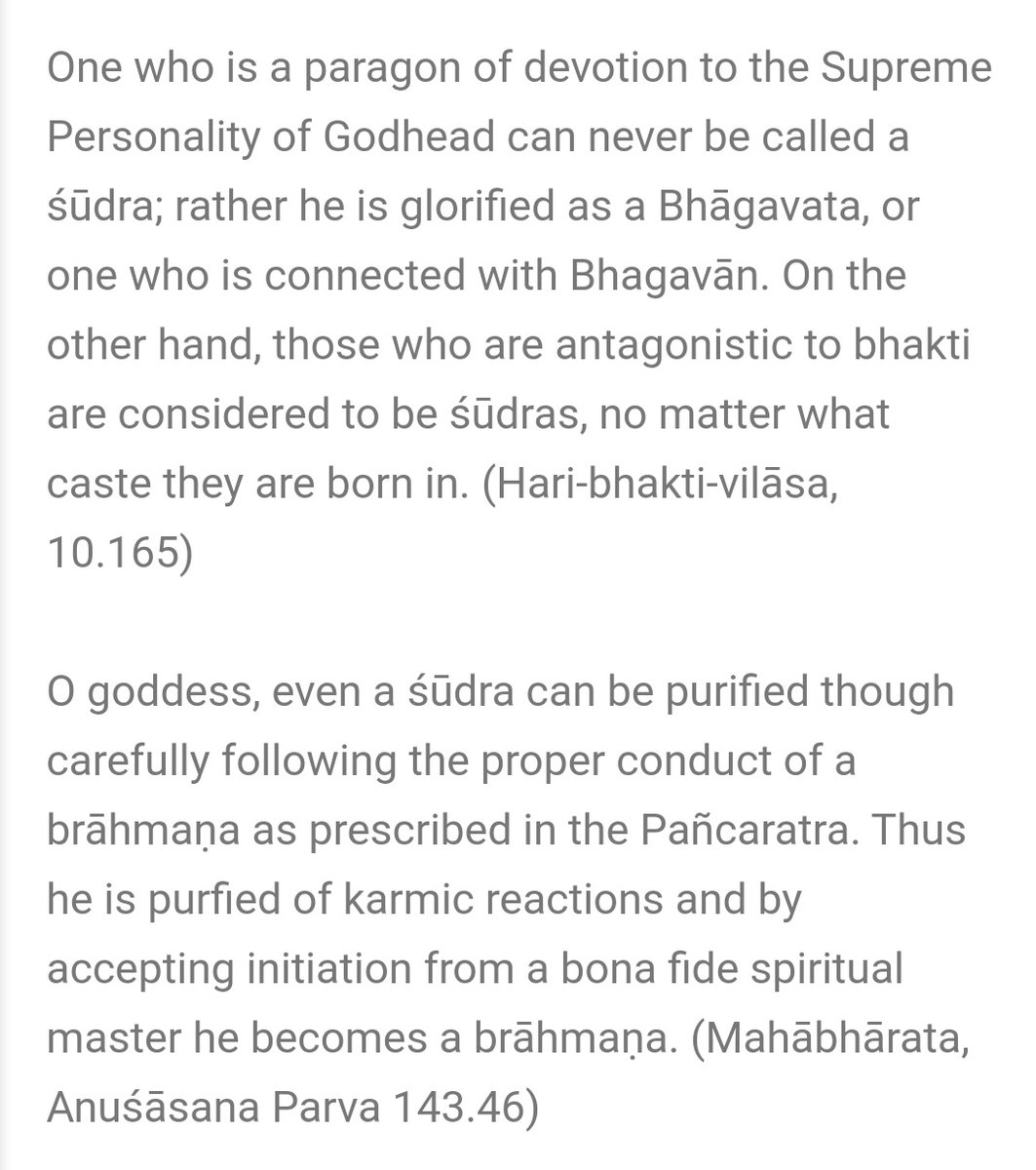
Even mlecchas who were addicted to sinful activities can be purified by taking shelter of the devotees of Śrī Hari. 
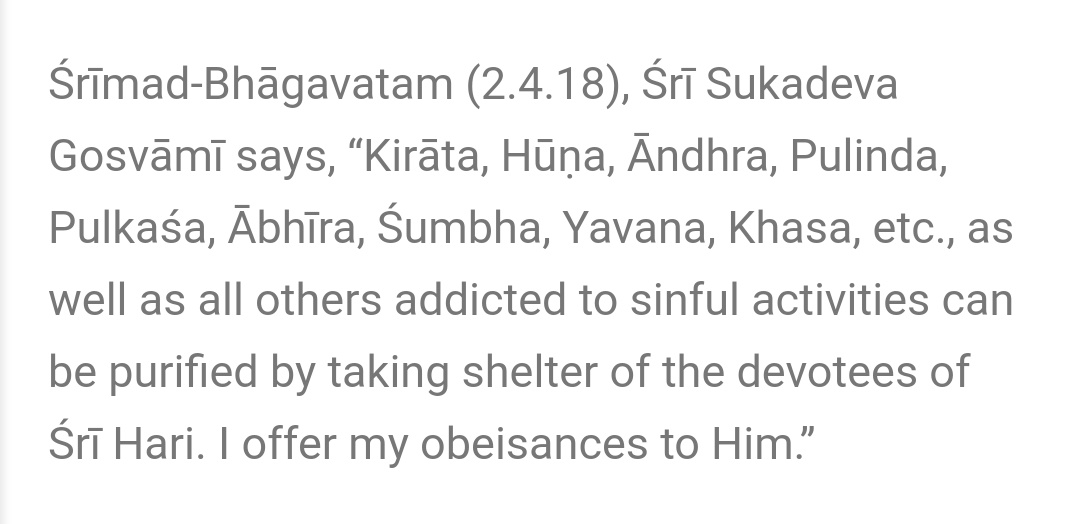
• • •
Missing some Tweet in this thread? You can try to
force a refresh

